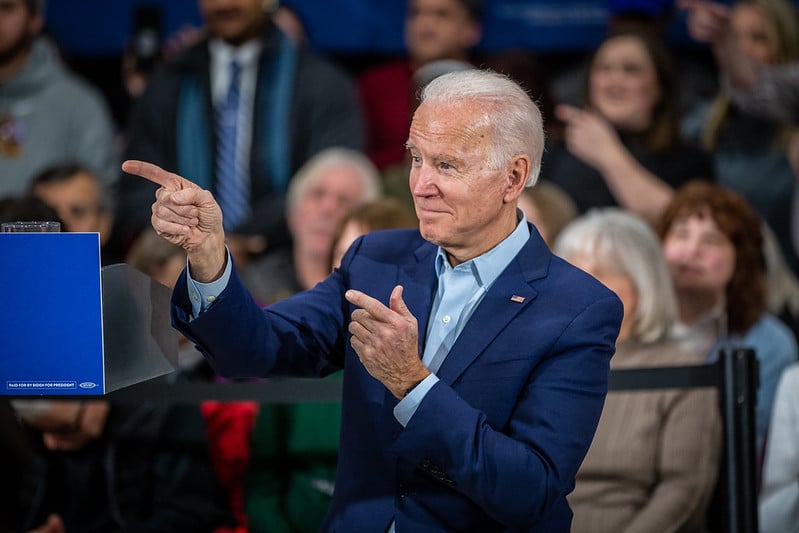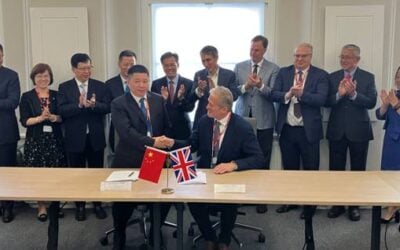
President Joe Biden’s first State of the Union (SOTU) address included strong messaging on the importance of both supply and demand side measures to support clean energy and its role in the US economy.
That included emphasis on renewables and tax incentives, urging Congress to pass proposed budgetary measures that would enable investment in both the supply chain and deployment of solar and wind — including doubling the production of both — and lowering the price of electric vehicles (EVs).
Enjoy 12 months of exclusive analysis
- Regular insight and analysis of the industry’s biggest developments
- In-depth interviews with the industry’s leading figures
- Annual digital subscription to the PV Tech Power journal
- Discounts on Solar Media’s portfolio of events, in-person and virtual
Tax incentives on the table as part of the bipartisan Build Back Better bill include the investment tax credit (ITC) for standalone energy storage, which has been much talked-about here on Energy-Storage.news and elsewhere. The ITC, including a direct-pay option, would turbocharge the energy storage industry in the country, reducing the cost of upfront investment by around a third, with analysis firm Wood Mackenzie having forecast this could create a 20% uplift on deployments.
“Let’s provide investments and tax credits to weatherise your homes and businesses to be energy efficient and you get a tax credit; double America’s clean energy production in solar, wind and so much more,” Biden said in his speech.
Measures to combat the climate crisis would reduce average household energy costs by US$500 a year, he added.
The president also reiterated calls for strengthening domestic supply chains of key materials, components and technologies, particularly in light of the pandemic-related delays caused to supply chains everywhere which he said highlighted the importance of being able to establish some self-reliance versus importing a large majority of materials.
While Biden’s speech made semiconductors as an example to directly reference, mentioning Intel’s US$20 billion semiconductor ‘mega site’ factory which the company is building in Ohio, Biden has previously focused on the importance of batteries and battery materials for EVs and grid storage.
‘Decarbonisation linked to global and national security’
In 2021, Biden had “bolted out of the starting gate to address the climate crisis as the emergency it is,” in rejoining the Paris Agreement, setting climate targets and signing the bipartisan Infrastructure Investment and Jobs Act, Dan Lashof, US director of non-profit research group World Resources Institute said in response to the SOTU speech.
“Despite Biden’s efforts, the US is not on track to achieve its ambitious climate targets and avert the worst climate impacts. It’s time for the U.S. Congress to catch up. Congress should heed Biden’s call to pass a climate-smart budget package to create millions of good-paying jobs in different sectors, including clean energy, electric transportation, building energy efficiency and more,” Lashof said.
The latest Intergovernmental Panel on Climate Change (IPCC) report published this week made it abundantly clear that “the world cannot afford for President Biden to slow down,” Lashof said.
“President Biden urged Congress to pass our clean energy tax package. This is our last chance to prevent the most catastrophic effects of the climate crisis, and Russia’s invasion of Ukraine has provided a stark reminder this week of the urgent need to free ourselves from the need for oil and gas from despots,” Senate Finance Committee Chair Ron Wyden said.
“Enacting our package of clean energy tax incentives, which would lower emissions by the power sector by more than 70%, is essential for the climate, family budgets, and global security.”
In a further statement, Wyden, an Oregon Democrat, said the package of clean energy tax incentives is first and foremost a way to drastically lower carbon emissions, but it would also reduce energy costs and lessen the US’ reliance on foreign oil and gas, “including from authoritarian regimes,” bolstering national security and diplomatic strength.
Similarly, Heather Zichal, CEO of the American Clean Power Association (ACP) — which has since the beginning of this year been merged with the national Energy Storage Association (ESA) — said the SOTU speech was “emphatic and unmistakably clear about the urgency of rapid clean energy investment”.
“The invasion of Ukraine reminded us that bullies like Vladimir Putin can play games with energy to hold countries hostage. This week we also heard the world’s leading climate scientists tell us that our planet is warming at an alarming rate,” Zichal said.
“The way out of both of these crises is to rapidly scale affordable, reliable clean energy everywhere. We join the President in urging Congress to take action on critical investments and tax credits for the renewable energy industry that have broad bipartisan support. Quick action will create good jobs and allow the rapid deployment of clean energy projects in all 50 states.”






